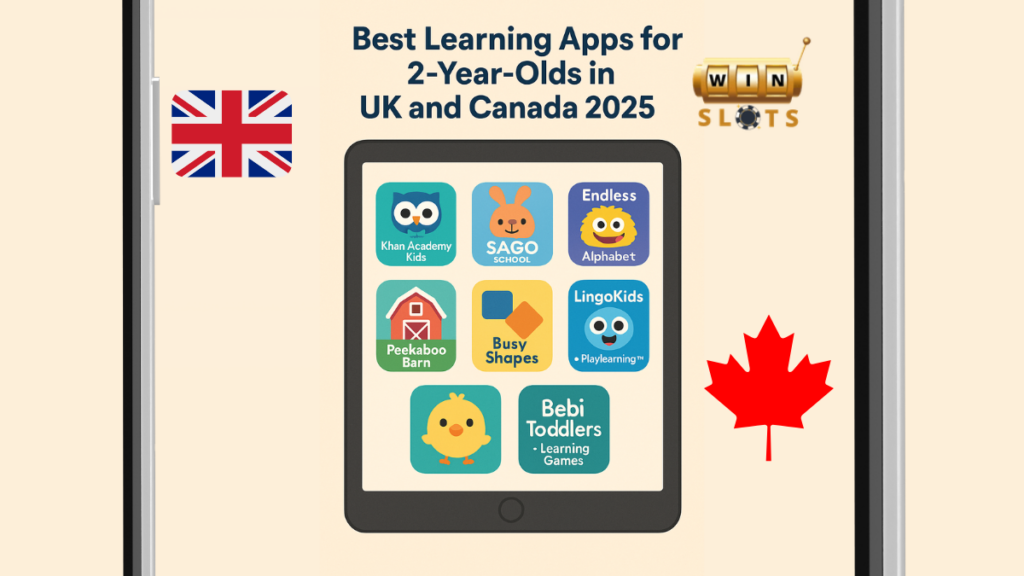The first few years of life are critical for cognitive, emotional, and motor development. In today’s digital age, more parents in the UK and Canada are turning to learning apps for toddlers as a tool to support early education.
The right apps can provide interactive, screen-based experiences that build vocabulary, fine motor skills, and problem-solving—all while keeping toddlers engaged.
In 2025, developers are creating smarter, safer, and more intuitive apps specifically for two-year-olds. Here’s a curated list of the best toddler learning apps currently trending across the UK and Canada.
Why Use Learning Apps for Toddlers?
When used in moderation and under adult supervision, learning apps can offer a rich, age-appropriate supplement to real-world play. For 2-year-olds, they provide:
- Repetition-based learning to support memory and recognition
- Interactive engagement through touch, sound, and animation
- Self-paced exploration that adapts to the child’s interests and skills
- Foundational skills in language, numbers, colors, and shapes
These apps are not replacements for human interaction but valuable tools when used alongside other activities like reading, outdoor play, and music.
Best Learning Apps for 2-Year-Olds

1. Khan Academy Kids
Availability: iOS, Android (Free)
A top choice for parents across both countries, Khan Academy Kids is a no-cost app loaded with early learning content, including letters, numbers, emotions, and songs.
What Makes It Stand Out:
- No ads or purchases
- Designed by childhood education experts
- Friendly characters guide toddlers through each activity
2. Sago Mini School
Availability: iOS (Free trial, subscription optional)
Created by a Canadian company, Sago Mini School is perfect for young learners. The app offers playful lessons on animals, vehicles, weather, and more—all with adorable animation.
Best Features:
- Encourages storytelling and pretend play
- Easy navigation for little fingers
- Supports offline play
3. Endless Alphabet
Availability: iOS, Android (Paid with free version)
A hit with UK and Canadian families alike, Endless Alphabet helps toddlers understand letters and sounds through interactive monster characters.
Why Parents Love It:
- High-quality phonics content
- No time limits, so kids learn at their pace
- Entertaining animations with educational value
4. Peekaboo Barn
Availability: iOS, Android (Paid)
This app introduces animals and sounds through a digital barn where toddlers tap to reveal who’s hiding. It’s simple, effective, and incredibly toddler-friendly.
Ideal For:
- Introducing cause and effect
- Building vocabulary through repetition
- Engaging toddlers with farm animal fun
5. Busy Shapes
Availability: iOS (Paid)
Designed around Jean Piaget’s theories of cognitive development, Busy Shapes is a logic-based app that challenges toddlers to drag and drop shapes into the correct holes.
Key Benefits:
- No text or instructions—pure discovery play
- Supports spatial awareness and shape recognition
- Great for hands-on thinkers
6. LingoKids – Playlearning™
Availability: iOS, Android (Free version with subscription option)
LingoKids offers a playful curriculum that includes basic math, literacy, and social-emotional learning. It’s especially good for bilingual households, with English and Spanish options.
Why It’s Trending in 2025:
- Regularly updated content
- Voice-guided for early learners
- Encourages movement and music-based interaction
7. Bebi Toddlers – Learning Games
Availability: Android, iOS (Free with optional upgrades)
This all-in-one app includes matching games, puzzles, animal names, and shape activities. Bebi Toddlers has become a go-to for many Canadian and UK parents.
Highlights:
- 500+ learning games
- Offline-friendly
- Colorful and toddler-safe design
Choosing the Right Toddler Learning App
Here are some practical tips for choosing quality learning apps for toddlers:
- Check for age-appropriate design—simple icons, limited text, and slow-paced interactions
- Look for apps without ads to reduce distraction and risk
- Prioritize educational value—apps that teach through play and exploration
- Read reviews from real parents in the UK and Canada to assess reliability
Recommendations
Top Puzzle Games for Toddlers: Boost Brain Development in USA Kids
Canada’s Most Loved Board Games for 3–5 Year Old Kids 2025
Best Educational Games for Toddlers 2025: USA and UK Parents’ Favorites
Screen-Free Games for Kids: UK’s Top Picks for 2–5 Year Old’s
Must-Have Sensory Toys and Games for Toddlers in Australia
Fun Backyard Games for 4-Year-Olds: USA Summer Favorites
FAQ
Q1: Are learning apps really effective for 2-year-olds?
A: Yes—when chosen carefully and used in moderation, learning apps can reinforce early skills like word recognition, matching, and fine motor coordination.
Q2: How much screen time is appropriate for a 2-year-old?
A: The World Health Organization recommends no more than one hour of high-quality screen time per day for toddlers, ideally co-viewed with a caregiver.
Q3: Do these apps work on both Android and iOS?
A: Most listed apps are available on both platforms. Always check app store compatibility before downloading.
Q4: Are paid apps better than free ones?
A: Not necessarily. Some paid apps offer more features or an ad-free experience, but many excellent free apps—like Khan Academy Kids—are equally effective.
Q5: How can I make learning apps part of our daily routine?
A: Use them in short sessions—15 to 20 minutes—after meals or before naps. Pair them with offline activities like storytime or craft to reinforce concepts.
Conclusion
In UK and Canada 2025, parents are embracing toddler learning apps that strike the right balance between entertainment and education. With careful selection and active involvement, these learning apps for toddlers can become a powerful tool in your child’s developmental journey—sparking curiosity and setting the stage for lifelong learning.



